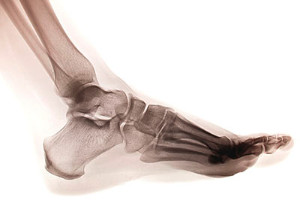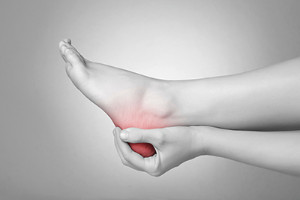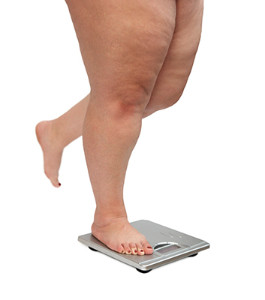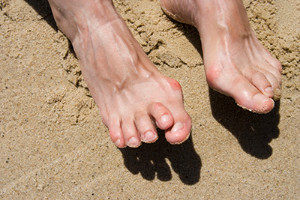Items filtered by date: March 2017
Bulls’ Payne again suffers foot injury
 Chicago Bulls' guard Cameron Payne, since being traded from the Oklahoma Thunder last year, is still having right foot problems. Last summer Payne was having pain in his foot, which eventually led to stress fracture surgery. Since the surgery Payne’s foot has been on the fritz. In training camp, he aggravated the surgical screw in his foot. Though he didn’t have a second surgery after this incident, the pain had lingered. Being that Payne has only been with the Bulls since February 23, he has been working overtime learning the offense. The pain has returned and now he’s back on the bench. In his own words, “I just need to take a little time off it.”
Chicago Bulls' guard Cameron Payne, since being traded from the Oklahoma Thunder last year, is still having right foot problems. Last summer Payne was having pain in his foot, which eventually led to stress fracture surgery. Since the surgery Payne’s foot has been on the fritz. In training camp, he aggravated the surgical screw in his foot. Though he didn’t have a second surgery after this incident, the pain had lingered. Being that Payne has only been with the Bulls since February 23, he has been working overtime learning the offense. The pain has returned and now he’s back on the bench. In his own words, “I just need to take a little time off it.”
Activities where too much pressure is put on the feet can cause stress fractures. To learn more, contact the podiatrists from Associated Podiatric Physicians, PA. Our doctors can provide the care you need to keep your pain free and on your feet.
Dealing with Stress Fractures of the Foot and Ankle
Stress fractures occur in the foot and ankle when muscles in these areas weaken from too much or too little use. The feet and ankles then lose support when walking or running from the impact of the ground. Since there is no protection, the bones receive the full impact of each step. Stress on the feet can cause cracks to form in the bones, thus creating stress fractures.
What Are Stress Fractures?
Stress fractures occur frequently in individuals whose daily activities cause great impact on the feet and ankles. Stress factors are most common among:
- Runners
- People affected with Osteoporosis
- Tennis or basketball players
- Gymnasts
- High impact workouts
Symptoms
Pain from the fractures occur in the area of the fractures and can be constant or intermittent. It will often cause sharp or dull pain with swelling and tenderness. Engaging in any kind of activity which involves high impact will aggravate pain.
If you have any questions please feel free to contact our office located in Hamilton Township, NJ. We offer the newest diagnostic and treatment technologies for all your foot and ankle needs.
Read more about Dealing with Stress Fractures of the Foot and AnkleCauses of Heel Pain
 Heel pain is a condition that plagues many people, and chronic cases can be especially difficult to endure. For many common cases of chronic heel pain, plantar fasciitis is the underlying culprit; plantar fasciitis affects all types of people, though most commonly active men between the ages of 40 and 70. Plantar fasciitis pain manifests in various ways. For some people, it can be described as dull; in other cases, people feel it as a sharp pain, a burning sensation, or an ache that extends outward from the heel. There are various factors that can contribute to plantar fasciitis. To determine the cause of your heel pain and the best way to treat it, consult with your podiatrist.
Heel pain is a condition that plagues many people, and chronic cases can be especially difficult to endure. For many common cases of chronic heel pain, plantar fasciitis is the underlying culprit; plantar fasciitis affects all types of people, though most commonly active men between the ages of 40 and 70. Plantar fasciitis pain manifests in various ways. For some people, it can be described as dull; in other cases, people feel it as a sharp pain, a burning sensation, or an ache that extends outward from the heel. There are various factors that can contribute to plantar fasciitis. To determine the cause of your heel pain and the best way to treat it, consult with your podiatrist.
Many people suffer from bouts of heel pain. For more information, contact the podiatrists of Associated Podiatric Physicians, PA. Our doctors can provide the care you need to keep you pain-free and on your feet.
Causes of Heel Pain
Heel pain is often associated with plantar fasciitis. The plantar fascia is a band of tissues that extends along the bottom of the foot. A rip or tear in this ligament can cause inflammation of the tissue.
Achilles tendonitis is another cause of heel pain. Inflammation of the Achilles tendon will cause pain from fractures and muscle tearing. Lack of flexibility is also another symptom.
Heel spurs are another cause of pain. When the tissues of the plantar fascia undergo a great deal of stress, it can lead to ligament separation from the heel bone, causing heel spurs.
Why Might Heel Pain Occur?
- Wearing ill-fitting shoes
- Wearing non-supportive shoes
- Weight change
- Excessive running
Treatments
Heel pain should be treated as soon as possible for immediate results. Keeping your feet in a stress-free environment will help. If you suffer from Achilles tendonitis or plantar fasciitis, applying ice will reduce the swelling. Stretching before an exercise like running will help the muscles. Using all these tips will help make heel pain a condition of the past.
If you have any questions please contact our office located in Hamilton Township, NJ. We offer the newest diagnostic and treatment technologies for all your foot and ankle needs.
Read more about Heel PainCauses of Heel Pain
 Heel pain is a condition that plagues many people, and chronic cases can be especially difficult to endure. For many common cases of chronic heel pain, plantar fasciitis is the underlying culprit; plantar fasciitis affects all types of people, though most commonly active men between the ages of 40 and 70. Plantar fasciitis pain manifests in various ways. For some people, it can be described as dull; in other cases, people feel it as a sharp pain, a burning sensation, or an ache that extends outward from the heel. There are various factors that can contribute to plantar fasciitis. To determine the cause of your heel pain and the best way to treat it, consult with your podiatrist.
Heel pain is a condition that plagues many people, and chronic cases can be especially difficult to endure. For many common cases of chronic heel pain, plantar fasciitis is the underlying culprit; plantar fasciitis affects all types of people, though most commonly active men between the ages of 40 and 70. Plantar fasciitis pain manifests in various ways. For some people, it can be described as dull; in other cases, people feel it as a sharp pain, a burning sensation, or an ache that extends outward from the heel. There are various factors that can contribute to plantar fasciitis. To determine the cause of your heel pain and the best way to treat it, consult with your podiatrist.
Many people suffer from bouts of heel pain. For more information, contact Donald Manger, DPM of Associated Podiatric Physicians, PA. Our doctor can provide the care you need to keep you pain-free and on your feet.
Causes of Heel Pain
Heel pain is often associated with plantar fasciitis. The plantar fascia is a band of tissues that extends along the bottom of the foot. A rip or tear in this ligament can cause inflammation of the tissue.
Achilles tendonitis is another cause of heel pain. Inflammation of the Achilles tendon will cause pain from fractures and muscle tearing. Lack of flexibility is also another symptom.
Heel spurs are another cause of pain. When the tissues of the plantar fascia undergo a great deal of stress, it can lead to ligament separation from the heel bone, causing heel spurs.
Why Might Heel Pain Occur?
- Wearing ill-fitting shoes
- Wearing non-supportive shoes
- Weight change
- Excessive running
Treatments
Heel pain should be treated as soon as possible for immediate results. Keeping your feet in a stress-free environment will help. If you suffer from Achilles tendonitis or plantar fasciitis, applying ice will reduce the swelling. Stretching before an exercise like running will help the muscles. Using all these tips will help make heel pain a condition of the past.
If you have any questions please contact our office located in Hamilton Township, NJ . We offer the newest diagnostic and treatment technologies for all your foot and ankle needs.
Study Finds Link Between Weight and Level of Foot Pain
 According to findings presented at the American College of Rheumatology Annual Meeting, patients with higher weights are more susceptible to foot pain. Instructor of Medicine Alyssa B. Dufour of Harvard Medical School and her colleagues studied 28 different measures over 57 years to identify the trajectories of weight in the Framingham Foot Study. After five such trajectories were established, patterns began to develop that showed a correlation between higher weight over time and higher levels of foot pain.
According to findings presented at the American College of Rheumatology Annual Meeting, patients with higher weights are more susceptible to foot pain. Instructor of Medicine Alyssa B. Dufour of Harvard Medical School and her colleagues studied 28 different measures over 57 years to identify the trajectories of weight in the Framingham Foot Study. After five such trajectories were established, patterns began to develop that showed a correlation between higher weight over time and higher levels of foot pain.
Obesity has become very problematic at this point in time and can have extremely negative effects on the feet. If you’re an obese individual and are concerned about your feet, contact the podiatrists from Associated Podiatric Physicians, PA. Our doctors can provide the care you need to keep you pain-free and on your feet.
Obesity and Your Feet
Since your feet are what support your entire weight when standing, any additional weight can result in pain and swelling. Being overweight is one of the main contributors to foot complications.
Problems & Complications
Extra Weight – Even putting on just a few extra pounds could create serious complications for your feet. As your weight increases, your balance and body will shift, creating new stresses on your feet. This uneven weight distribution can cause pain, even while doing the simplest tasks, such as walking.
Diabetes – People who are overweight are at serious risk of developing type-2 diabetes, which has a drastic impact on the health of your feet. As you get older, your diabetes might worsen, which could lead to loss of feeling in your feet, sores, and bruises. You could also become more prone to various infections.
Plantar fasciitis – Pressure and stress that is placed on muscles, joints, and tendons can trigger plantar fasciitis, which is an inflammation of tissue that forms along the bottom of the foot.
If you have any questions please feel free to contact our office located in Hamilton Township, NJ. We offer the newest diagnostic and treatment technologies for all your foot and ankle needs.
Read more about How Obesity Affects Your FeetStudy Finds Link Between Weight and Level of Foot Pain
 According to findings presented at the American College of Rheumatology Annual Meeting, patients with higher weights are more susceptible to foot pain. Instructor of Medicine Alyssa B. Dufour of Harvard Medical School and her colleagues studied 28 different measures over 57 years to identify the trajectories of weight in the Framingham Foot Study. After five such trajectories were established, patterns began to develop that showed a correlation between higher weight over time and higher levels of foot pain.
According to findings presented at the American College of Rheumatology Annual Meeting, patients with higher weights are more susceptible to foot pain. Instructor of Medicine Alyssa B. Dufour of Harvard Medical School and her colleagues studied 28 different measures over 57 years to identify the trajectories of weight in the Framingham Foot Study. After five such trajectories were established, patterns began to develop that showed a correlation between higher weight over time and higher levels of foot pain.
Obesity has become very problematic at this point in time and can have extremely negative effects on the feet. If you’re an obese individual and are concerned about your feet, contact Donald Manger, DPM from Associated Podiatric Physicians, PA. Our doctor can provide the care you need to keep you pain-free and on your feet.
Obesity and Your Feet
Since your feet are what support your entire weight when standing, any additional weight can result in pain and swelling. Being overweight is one of the main contributors to foot complications.
Problems & Complications
Extra Weight – Even putting on just a few extra pounds could create serious complications for your feet. As your weight increases, your balance and body will shift, creating new stresses on your feet. This uneven weight distribution can cause pain, even while doing the simplest tasks, such as walking.
Diabetes – People who are overweight are at serious risk of developing type-2 diabetes, which has a drastic impact on the health of your feet. As you get older, your diabetes might worsen, which could lead to loss of feeling in your feet, sores, and bruises. You could also become more prone to various infections.
Plantar fasciitis – Pressure and stress that is placed on muscles, joints, and tendons can trigger plantar fasciitis, which is an inflammation of tissue that forms along the bottom of the foot.
If you have any questions please feel free to contact our office located in Hamilton Township, NJ . We offer the newest diagnostic and treatment technologies for all your foot and ankle needs.
Understanding Hammertoes
 If you have hammertoes, it may be due to a number of factors including improperly-fitting shoes or muscle and nerve diseases that can affect your feet. Hammertoes are described as bent and curled toes, seeming to resemble the claw of a hammer. The condition is permanent and may require treatment if pain progresses. Typical treatment includes wearing the proper footwear and physical therapy. A final option is surgery for severe cases, but consulting with your podiatrist first about your condition is recommended before deciding on the surgical option.
If you have hammertoes, it may be due to a number of factors including improperly-fitting shoes or muscle and nerve diseases that can affect your feet. Hammertoes are described as bent and curled toes, seeming to resemble the claw of a hammer. The condition is permanent and may require treatment if pain progresses. Typical treatment includes wearing the proper footwear and physical therapy. A final option is surgery for severe cases, but consulting with your podiatrist first about your condition is recommended before deciding on the surgical option.
Hammertoe
Hammertoes can be a painful condition to live with. For more information, contact the podiatrists from Associated Podiatric Physicians, PA. Our doctors will answer any of your foot- and ankle-related questions.
Hammertoe is a foot deformity that affects the joints of the second, third, fourth, or fifth toes of your feet. It is a painful foot condition in which these toes curl and arch up, which can often lead to pain when wearing footwear.
Symptoms
- Pain in the affected toes
- Development of corns or calluses due to friction
- Inflammation
- Redness
- Contracture of the toes
Causes
Genetics – People who are genetically predisposed to hammertoe are often more susceptible
Arthritis – Because arthritis affects the joints in your toes, further deformities stemming from arthritis can occur
Trauma – Direct trauma to the toes could potentially lead to hammertoe
Ill-fitting shoes – Undue pressure on the front of the toes from ill-fitting shoes can potentially lead to the development of hammertoe
Treatment
Orthotics – Custom made inserts can be used to help relieve pressure placed on the toes and therefore relieve some of the pain associated with it
Medications – Oral medications such as anti-inflammatories or NSAIDs could be used to treat the pain and inflammation hammertoes causes. Injections of corticosteroids are also sometimes used
Surgery – In more severe cases where the hammertoes have become more rigid, foot surgery is a potential option
If you have any questions please contact our office located in Hamilton Township, NJ. We offer the newest diagnostic and treatment technologies for all your foot and ankle needs.
Read more about What Are Hammertoes?Understanding Hammertoes
 If you have hammertoes, it may be due to a number of factors including improperly-fitting shoes or muscle and nerve diseases that can affect your feet. Hammertoes are described as bent and curled toes, seeming to resemble the claw of a hammer. The condition is permanent and may require treatment if pain progresses. Typical treatment includes wearing the proper footwear and physical therapy. A final option is surgery for severe cases, but consulting with your podiatrist first about your condition is recommended before deciding on the surgical option.
If you have hammertoes, it may be due to a number of factors including improperly-fitting shoes or muscle and nerve diseases that can affect your feet. Hammertoes are described as bent and curled toes, seeming to resemble the claw of a hammer. The condition is permanent and may require treatment if pain progresses. Typical treatment includes wearing the proper footwear and physical therapy. A final option is surgery for severe cases, but consulting with your podiatrist first about your condition is recommended before deciding on the surgical option.
Hammertoe
Hammertoes can be a painful condition to live with. For more information, contact Donald Manger, DPM from Associated Podiatric Physicians, PA. Our doctor will answer any of your foot- and ankle-related questions.
Hammertoe is a foot deformity that affects the joints of the second, third, fourth, or fifth toes of your feet. It is a painful foot condition in which these toes curl and arch up, which can often lead to pain when wearing footwear.
Symptoms
- Pain in the affected toes
- Development of corns or calluses due to friction
- Inflammation
- Redness
- Contracture of the toes
Causes
Genetics – People who are genetically predisposed to hammertoe are often more susceptible
Arthritis – Because arthritis affects the joints in your toes, further deformities stemming from arthritis can occur
Trauma – Direct trauma to the toes could potentially lead to hammertoe
Ill-fitting shoes – Undue pressure on the front of the toes from ill-fitting shoes can potentially lead to the development of hammertoe
Treatment
Orthotics – Custom made inserts can be used to help relieve pressure placed on the toes and therefore relieve some of the pain associated with it
Medications – Oral medications such as anti-inflammatories or NSAIDs could be used to treat the pain and inflammation hammertoes causes. Injections of corticosteroids are also sometimes used
Surgery – In more severe cases where the hammertoes have become more rigid, foot surgery is a potential option
If you have any questions please contact our office located in Hamilton Township, NJ . We offer the newest diagnostic and treatment technologies for all your foot and ankle needs.
